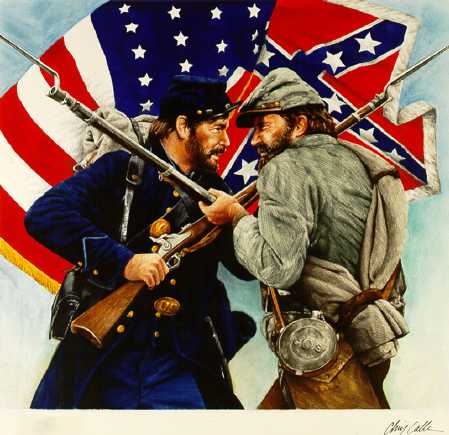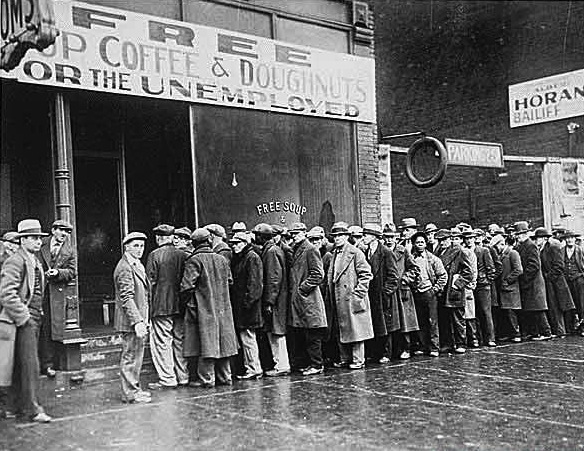The Civil War, Reconstruction, and the Jim Crow Era 1860–1899
1860
After the election of antislavery president Abraham Lincoln, South Carolina secedes from the Union, followed by Alabama, Florida, Georgia, Louisiana, and Mississippi, to form the Confederate States of America
1861
Civil War begins when Confederates fire on Union forces at Fort Sumter, South Carolina
1862
Congress bans slavery in Washington, D.C., and the territories and passes the Second Confiscation Act, which grants freedom to slaves whose masters support the Confederacy
A group of African Americans confer with President Abraham Lincoln, who voices support for voluntary emigration of African Americans to Africa and Central America
1863
Emancipation Proclamation frees all slaves in Confederate-held territories
Black troops of the 54th Massachusetts Regiment charge Fort Wagner in South Carolina
Wilberforce University in Ohio (founded in 1856) becomes the first college run by African American educators when Bishop Daniel Payne purchases the school for the A.M.E. Church; he serves as the university’s first president
1864
Congress repeals all Fugitive Slave laws and grants black Union troops pay equal to that of white troops
1865
Civil War ends with the defeat of the South
Congress ratifies the Thirteenth Amendment to abolish slavery in the U.S.
Congress establishes the Freedmen’s Bureau to provide assistance to refugees and newly emancipated blacks
Establishment of major black colleges and universities:Atlanta University, Shaw University, and Virginia Union University (1865); Fisk University and Howard University (1866); Talladega College and Morgan State University (1867)
1866
Congress passes the Southern Homestead Act, which opens public lands in Alabama, Mississippi, Louisiana, Arkansas, and Florida to settlers regardless of race
Civil Rights Act grants African Americans full U.S. citizenship
Ku Klux Klan and other white supremacist groups begin terrorist campaigns against blacks and white Republicans
1867
Congress passes the First Reconstruction Act, which divides former Confederate states into five military districts under the command of army generals, requires districts to hold new elections for state offices, and grants voting rights for male citizens regardless of race, color, or previous condition of servitude; enforcement of the act gives African Americans the majority vote in most Southern states
1868
Congress ratifies the Fourteenth Amendment, which grants full civil liberties to African Americans
1870
Congress ratifies the Fifteenth Amendment, which grants voting rights regardless of “race, color, or previous condition of servitude”; it does not extend this right to women
Hiram Rhoades Revels of Mississippi becomes the first African American elected to the U.S. Senate; subsequent African Americans to be elected to Congress include Joseph H. Rainey (R-SC), Robert Brown Elliot (R-SC), Alonzo J.Ransier (R-SC), Benjamin S. Turner (R-AL), Robert C. DeLarge (R-SC), Josiah T.Walls (R-FL), Jefferson F. Long (R-GA)
1871
Fisk Jubilee Singers tour throughout the United States and Europe and popularize black spiritual music
1872
Pinckney Benton Stewart Pinchback becomes the first African American to serve as a state governor (interim governor of Louisiana)
1875
Civil Rights Act prohibits racial discrimination in employment and establishes the right of African Americans to serve on juries
1876
Edward Alexander Boucher becomes the first African American to receive a doctorate degree, in physics from Yale University
1877
President Rutherford B. Hayes removes all federal troops from Louisiana and South Carolina as Reconstructioncomes to an end; by 1878, African American Republican governors are ousted and African Americans disenfranchised via technicalities or newly enacted voting hurdles; the number of African American representatives in Congress drops dramatically by 1881
1878
First migration of blacks, fleeing racial oppression in the South, to Kansas
1881
Tennessee enacts the first of many Jim Crow laws to enforce racial segregation in the South; this first law mandates segregation on railroad cars
Booker T. Washington founds the Tuskegee Institute in Alabama
1882
Approximately 50 African Americans are lynched across the U.S.; the number rises steadily for years afterward
1883
George Washington Williams publishes his History of the Negro Race in America from 1619 to 1880
1885
Cuban Giants become the first African American professional baseball team
1886
Knights of Labor, the farmers, craft, and factory workers’ union, reaches peak membership of 700,000; of these, 60,000 to 90,000 are African American
1888
Princess-Regent Isabel abolishes slavery in Brazil
1889
Frederick Douglass serves as U.S. minister and consul general to Haiti
1891
Daniel Hale Williams establishes Chicago’s Provident Hospital, the first hospital staffed and operated by African Americans; in 1893, Williams performs the world’s first open-heart surgery
1892
Baltimore’s Afro-Americanpublication is founded
1894
Congress repeals the Enforcement Act, making it easier for states to disenfranchise black voters
1895
Booker T. Washington delivers his Atlanta Compromisespeech, which calls on African Americans to accept segregation in return for economic advancement
1896
U.S. Supreme Court rules in Plessy v. Ferguson that “separate but equal” facilities are constitutional; this ruling enables proliferation of Jim Crow laws
1897
W.E.B. Du Bois and Rev. Alexander Crummell establish the American Negro Academy, the first institution to promote African American literature, science, and art; writer, educator, and black women’s rights activist Anna Julia Cooper is the only woman elected to membership
1898
John Merrick and associates found the North Carolina Mutual Life Insurance Company, setting off a boom of black-owned businesses in Durham, North Carolina
1899
National Afro-American Council calls for a day of fasting to protest lynchings and racial massacres











